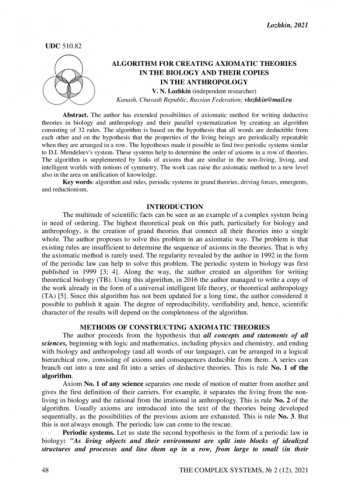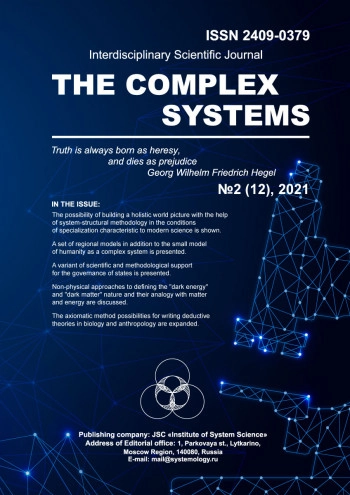The author has extended possibilities of axiomatic method for writing deductive theories in biology and anthropology and their parallel systematization by creating an algorithm consisting of 32 rules. The algorithm is based on the hypothesis that all words are deductible from each other and on the hypothesis that the properties of the living beings are periodically repeatable when they are arranged in a row. The hypotheses made it possible to find two periodic systems similar to D.I. Mendeleev’s system. These systems help to determine the order of axioms in a row of theories. The algorithm is supplemented by links of axioms that are similar in the non-living, living, and intelligent worlds with notions of symmetry. The work can raise the axiomatic method to a new level also in the area on unification of knowledge.
Сайт https://scinetwork.ru (далее – сайт) работает по принципу агрегатора – собирает и структурирует информацию из публичных источников в сети Интернет, то есть передает полнотекстовую информацию о товарных знаках в том виде, в котором она содержится в открытом доступе.
Сайт и администрация сайта не используют отображаемые на сайте товарные знаки в коммерческих и рекламных целях, не декларируют своего участия в процессе их государственной регистрации, не заявляют о своих исключительных правах на товарные знаки, а также не гарантируют точность, полноту и достоверность информации.
Все права на товарные знаки принадлежат их законным владельцам!
Сайт носит исключительно информационный характер, и предоставляемые им сведения являются открытыми публичными данными.
Администрация сайта не несет ответственность за какие бы то ни было убытки, возникающие в результате доступа и использования сайта.
Спасибо, понятно.




